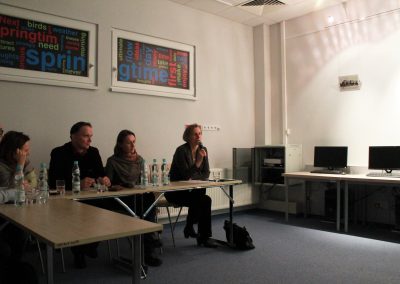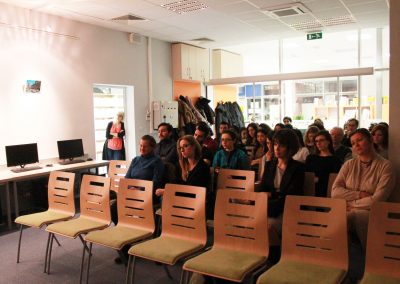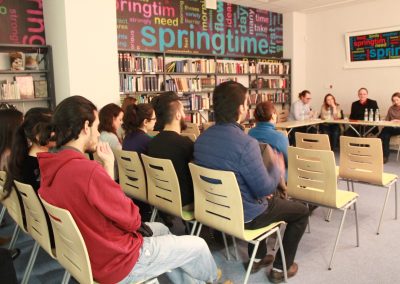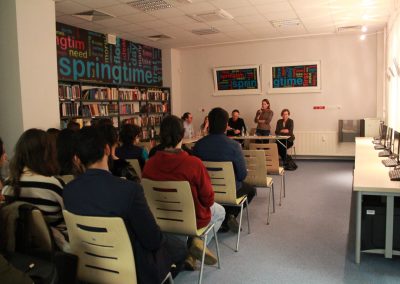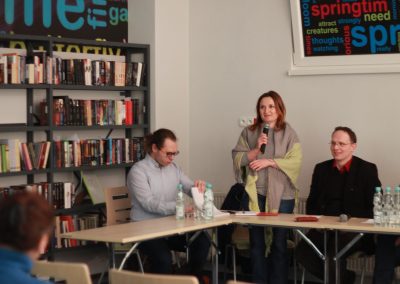On Wednesday we met in the Municipal Library Fil. 4 to participate in the debate entitled Gender ideology(ies): Man and woman – different by nature, inequal by society? We tried to find the answer to this question with our four guests: sociologists Borys Cymbrowski and Anna Czerner, philologist Katarzyna Molek-Kozakowska and biologist Elżbieta Pogoda.
We were aware that for most people the term gender is unfamiliar or even unfriendly, especially when someone is not a philologist or a social researcher, so we started with the basic questions: what gender is, how it exists in our respective fields of studies, and if there exists gender ideology. We can say that gender in general is about social consequences of being men, women or the others, because in the opinion of Elżbieta Pogoda even from a biological point of view there are more than only two sexes. And there is no evidence that one sex has an advantage over another.
In Polish media we encounter some false beliefs about the meaning of the word “gender”. But as Borys Cymbrowski mentioned it is a problem of confusion of nature with culture, because in the Polish language we have only one word (płeć) for gender and for sex. So some commentators confuse biological meaning with the cultural one. They accuse gender scholars of promoting a dangerous ideology which tries to convince people to choose their sex. As Anna Czerner said, the truth is that in the social sciences gender was a neutral category to analyse the relations between people in society, but unfortunately some institutions and politicians took one of the least popular topics in gender studies and used it as a basis to create and apply gender ideology as a political tool.
After that we focused mostly on language aspects within gender issues. Katarzyna Molek-Kozakowska indicated that for her it was easier to introduce herself in English than in Polish, because in Polish most names of academic professions have only a masculine gender, or even if it has a female gender, masculine forms sound more serious and more prestigious. But language is not a constant phenomenon – it is changing all the time. Twenty years ago we considered some female forms of words as strange, but today we take them for granted. We concluded that it is important to include more women-related forms to language, and it is one of the main catalysts of social changes in the public sphere.
We are really glad we could discuss it with you and with the citizens of Opole. We would like to thank you all for your presence and participation, and we hope to see you soon during another discussion. The aim of the whole debate was to clarify a little the problem of gender, but two hours is a short time when you are discussing such an important and complicated topic – so we treat this meeting only as a start. The debate is still open.

Electronic enrolment for the university-wide variable courses starts on the 1st of December
The first round of electronic enrolment for the university-wide variable courses in the winter semester of the academic year 2023/2024 starts on December 01, 2023. It is important that each student, before registering in their account usosweb.uni.opole.pl checks...
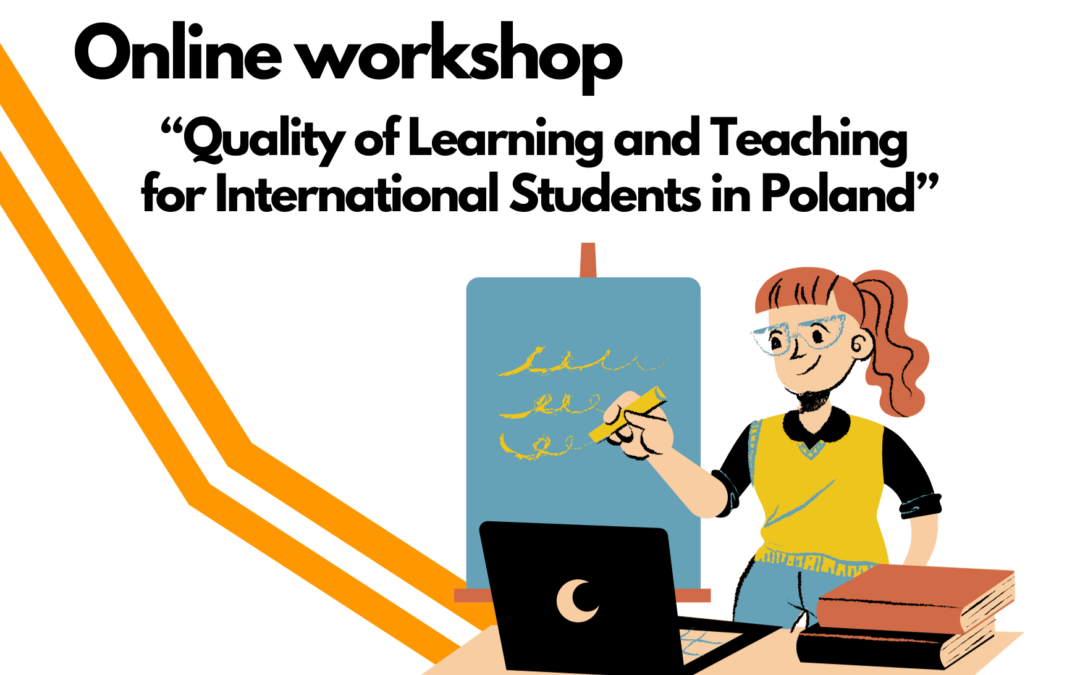
Online workshop “Quality of Learning and Teaching for International Students in Poland
We invite you to an online workshop entitled "Quality of Learning and Teaching for international students in Poland". The meeting will be conducted by Prof. Jakub Brdulak from SGH Warsaw School of Economics on 7.12.2023, between 6 PM - 7 PM. Platform: Zoom Language:...
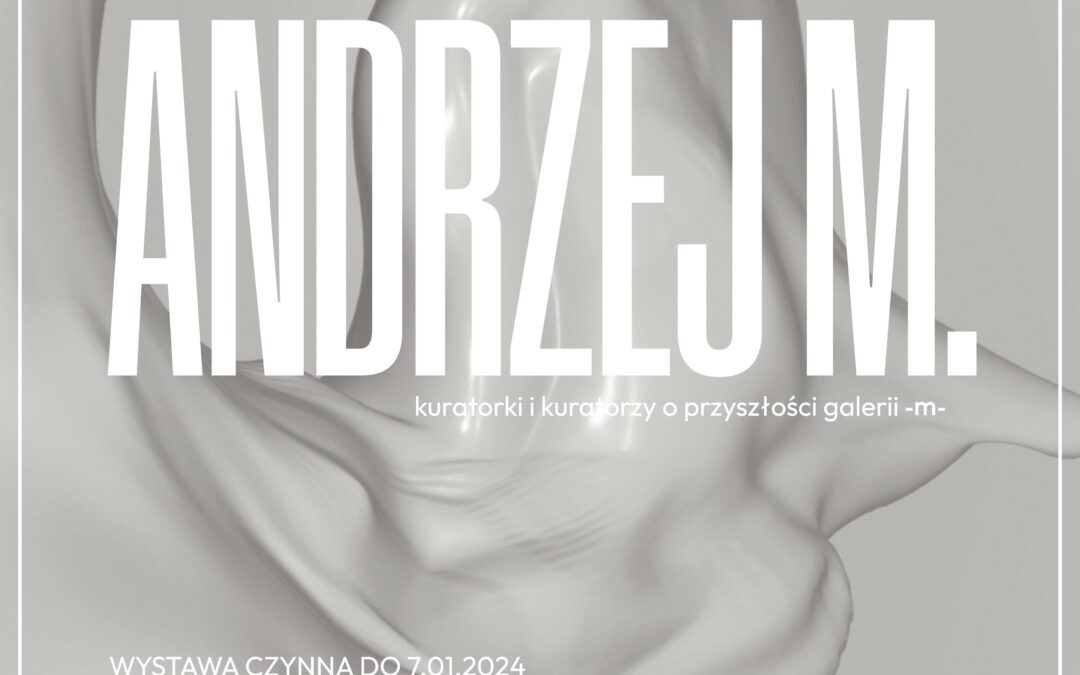
Andrzej M. – exhibition in the GALLERY -m-
Andrzej M. i osoby kuratorskie: Julia Brodziak, Julia Chlebicka, Mateusz Domeradzki, Natalia Krawczyk, Tatiana Kyryliuk, Emilia Nawrocka, Emilia Piątek, Aneta Pikuła, Krzysztof Tarnowski, Anna Zadworna Andrzej M. to wystawa w klimacie andrzejkowym, a zarazem nasza...
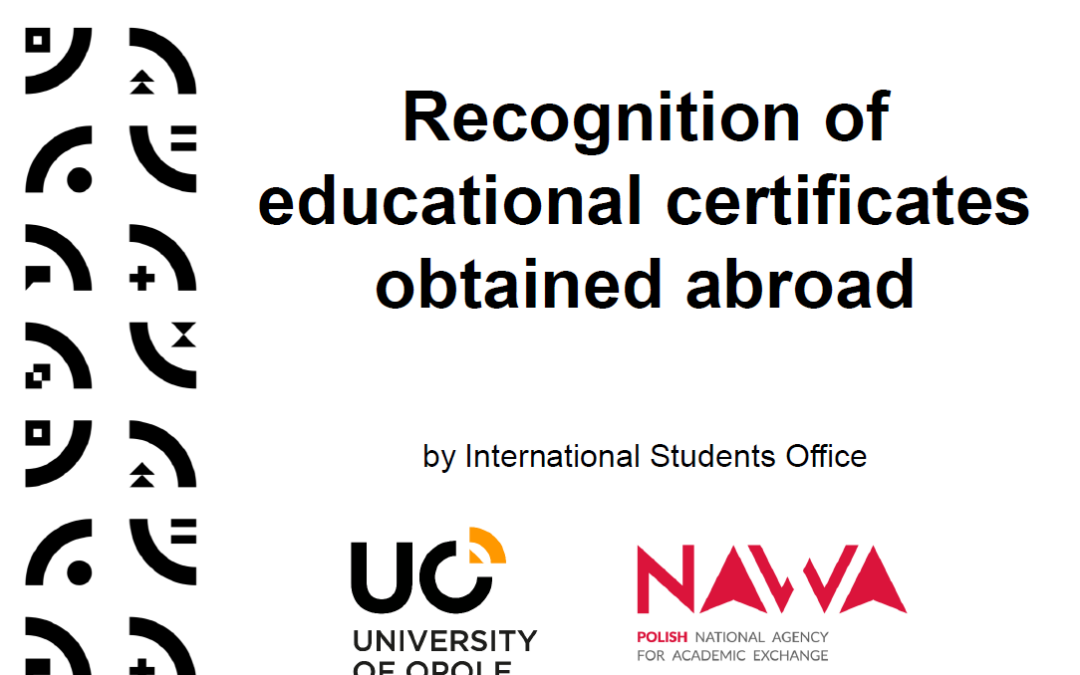
Meeting on recognition of education obtained abroad successfully concluded!
On 22 November 2023, the International Students Office ran a meeting regarding the recognition of education obtained abroad. During the meeting students from different countries had the opportunity to get detailed information in regard to the procedure – how...
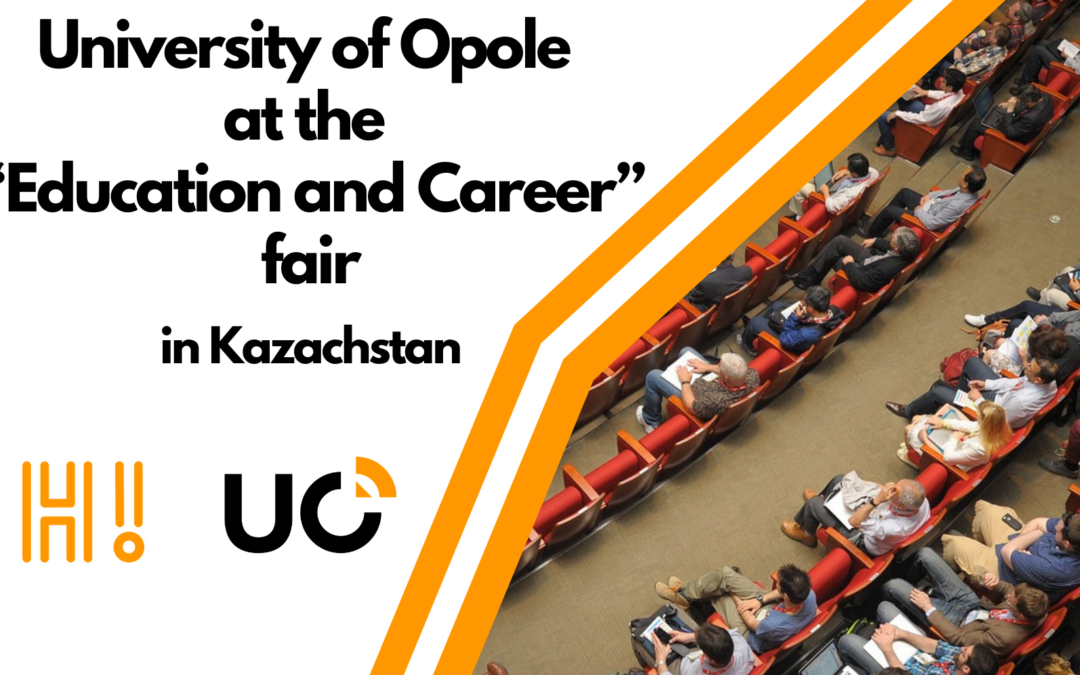
University of Opole at the international fair in Kazachstan!
We would like to inform you that from November 22 to 24 our representatives of Opole University will take part in an international fair "Education and Career" organized at the International Exhibition Center "Atakent" in Almaty. The goal of our participation is...

Invitation for the meeting regarding recognition of secondary school certificates
Invitation for the meeting regarding recognition of secondary school certificatesDear students! We would like to invite all undergraduate students for a meeting regarding the procedure of recognition of education obtained abroad. Recognition of education is compulsory...
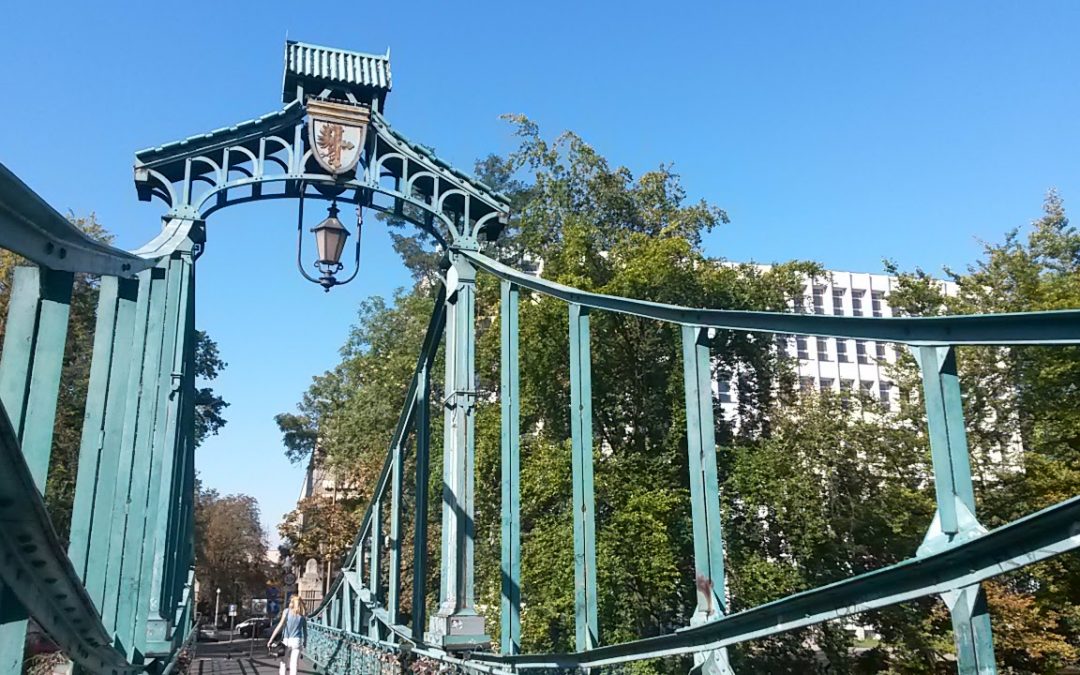
students photo contest
Photograph Opole, show why studying here is worth it and win prizes! The University of Opole would like to announce a photography competition aimed at the students of UO! Take a photo that references the student and academic community of Opole and incorporates the...
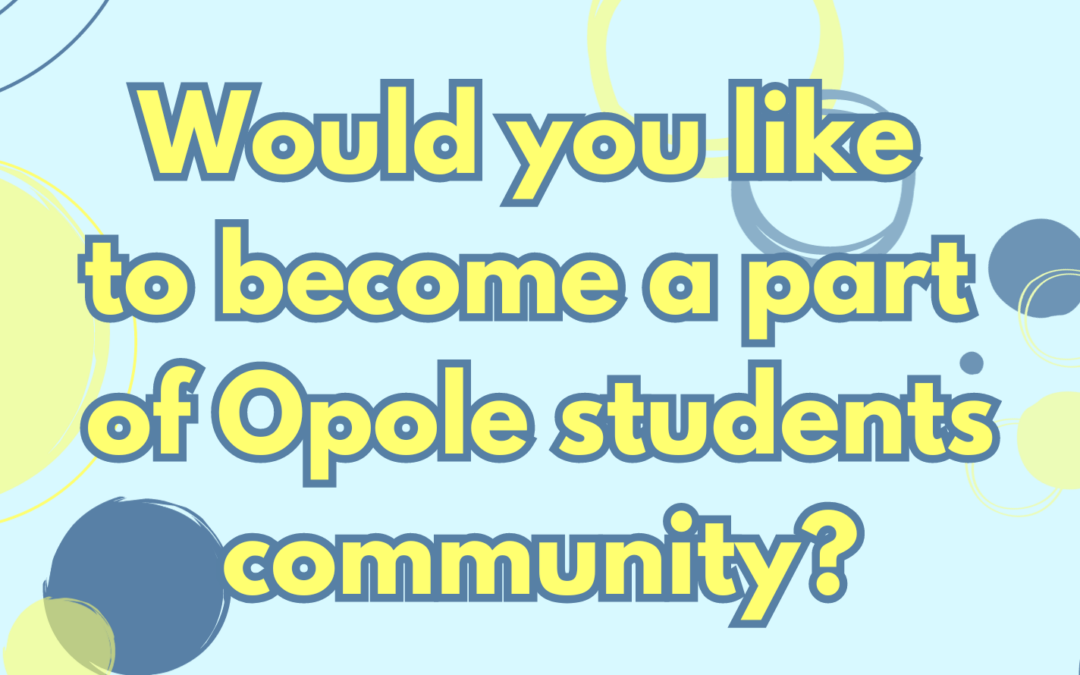
UO in a Cultural Melting Pot – Multiculturalism in Academia /vol. 4
The University of Opole would like to invite all to the „FORUM THEATRE, or how to face discrimination” workshop led by dr Marzanna Pogorzelska, which will be held on November 21st at 10:00 at the Students’ Cultural Center (95 Katowicka St). We’ll talk about ways in...

UO in a Cultural Melting Pot – Multiculturalism in Academia /vol. 3
We would like to invite all to the ”Foreigners in Opole and the academic environment” scientific debate conducted by mgr Marcin Deutschmann, which will take place on November 7th at 10:15 at the Students’ Cultural Center (95 Katowicka St). In this debate,...
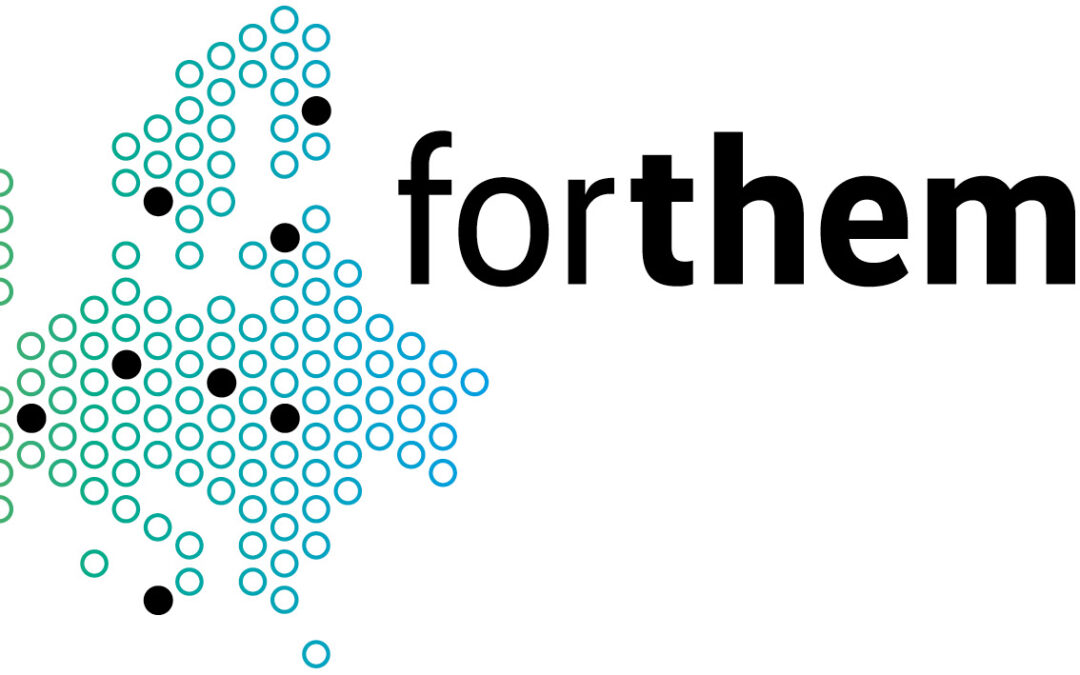
FORTHEM for students – open call
You can now apply for short-term mobilities within FORTHEM Alliance. You can choose from 11 collective mobilities or apply for an individual stay at one of the partner universities. Collective short-term mobilities: Contemporary Security Agenda: From Soft...
